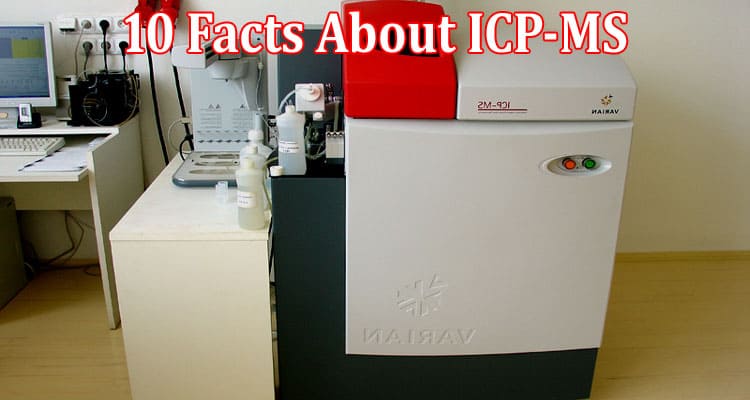10 Facts About ICP-MS
In analytical chemistry, precision and sensitivity are paramount. Researchers and scientists constantly seek innovative tools to scrutinize and quantify elements and compounds at minuscule concentrations. Inductively Coupled Plasma Mass Spectrometry (ICP-MS) is a remarkable instrument that has revolutionized the field.
This article will delve into the definition of ICS-MS, its fundamentals, and its ten fascinating facts.
What is ICP-MS and Its Fundamentals
ICP-MS (Inductively Coupled Plasma Mass Spectrometry) is a powerful analytical technique used to determine the elemental composition of a sample. It combines the principles of inductively coupled plasma (ICP) and mass spectrometry (MS) to achieve high sensitivity, accuracy, and versatility in elemental analysis. Here are the fundamentals of ICP-MS:
- Inductively Coupled Plasma (ICP)
- Mass Spectrometry (MS)
- Sample Introduction
- Calibration
- Data Analysis
- Sensitivity and Limitations
Ten Facts about ICP-MS
Inductively Coupled Plasma Mass Spectrometry, or ICP-MS stands at the forefront of modern analytical chemistry. Its amalgamation of two groundbreaking technologies, Inductively Coupled Plasma (ICP) and Mass Spectrometry (MS), has given rise to a remarkable instrument with an array of impressive features and applications.
Here are some compelling facts about ICP-MS that shed light on its significance and versatility in the world of science:
1. A Fusion of Technologies
ICP-MS is the result of merging two cutting-edge technologies – Inductively Coupled Plasma (ICP) and Mass Spectrometry (MS). Combining these techniques enables the precise and simultaneous determination of a vast range of elements with exceptional sensitivity.
2. Remarkable Sensitivity
ICP-MS is renowned for its remarkable sensitivity, allowing scientists to detect elements at astonishingly low concentrations. In some cases, it can detect elements in the parts per trillion (ppt) range, equivalent to finding a single grain of salt in an Olympic-sized swimming pool.
3. Versatile Elemental Analysis
ICP-MS can analyze a diverse spectrum of elements across the periodic table. This encompasses the lightest elements, such as hydrogen and lithium, to heavy metals like uranium and plutonium.
4. Elemental Fingerprinting
ICP-MS is often used for elemental fingerprinting, geology, environmental science, and forensics techniques. By analyzing the elemental composition of samples, scientists can trace the origin of materials, identify pollution sources, and even solve criminal cases.
5. Isotopic Precision
ICP-MS can distinguish between different isotopes of an element with astonishing precision. This feature is particularly valuable in radiometric dating, where the ratio of radioactive to stable isotopes can reveal the age of geological samples.
6. Wide Range of Applications
ICP-MS finds applications in many fields, including environmental monitoring, pharmaceuticals, metallurgy, and food safety. Its versatility makes it an indispensable tool for researchers across diverse domains.
7. Rapid Analysis
With its high throughput capabilities, ICP-MS can analyze multiple samples quickly. This is essential in pharmaceutical industries, where timely quality control is critical.
8. Challenges in Sample Preparation
While ICP-MS offers exceptional sensitivity, the challenge lies in sample preparation. Samples must be properly digested and introduced into the instrument to avoid contamination and ensure accurate results.
9. Quantum Leap in Geochemistry
ICP-MS has revolutionized the study of rocks, minerals, and even meteorites in geochemistry. It allows geochemists to unravel the history of the planet by analyzing isotopic compositions and trace element concentrations in various geological materials.
10. Emerging Applications
As technology advances, ICP-MS finds new applications in nanotechnology and materials science. Researchers are using it to study nanoparticles, thin films, and other advanced materials at the atomic level.
ICP-MS: Revolutionizing Analytical Chemistry Across Diverse Frontiers
Inductively Coupled Plasma Mass Spectrometry (ICP-MS) is undeniably a game-changer in analytical chemistry. Its remarkable sensitivity, versatility, and ability to handle a wide range of samples have made it an indispensable tool for researchers and scientists across various fields.
Whether it’s solving environmental mysteries, uncovering the secrets of ancient rocks, or ensuring the safety of pharmaceuticals, ICP-MS continues to push the boundaries of what is possible in analytical chemistry. As technology advances, thinking about the new frontiers ICP-MS will explore and the discoveries it will unlock is exciting.




